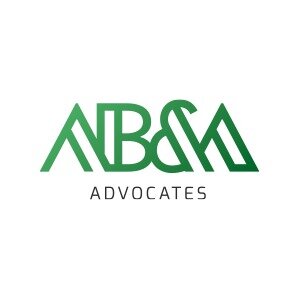Best Asylum Lawyers in Valletta
Share your needs with us, get contacted by law firms.
Free. Takes 2 min.
List of the best lawyers in Valletta, Malta
About Asylum Law in Valletta, Malta
Asylum law in Valletta, Malta is governed by both national legislation and the European Union’s directives on asylum and refugee protection. Malta, as an EU member, follows the Common European Asylum System (CEAS), ensuring international protection for those who qualify as refugees or have subsidiary protection needs. Asylum seekers arriving in Valletta go through the process of submitting an application, which is then scrutinized by the authorities to determine if the individual meets the legal criteria for asylum or other forms of protection.
Why You May Need a Lawyer
Seeking asylum involves navigating a complex legal and bureaucratic process. Here are common situations where legal help can be essential:
- Application Process: Filing an asylum application requires precise documentation and adherence to strict deadlines.
- Legal Advice: Understanding the grounds for asylum and the applicable laws can be challenging without expert guidance.
- Representation at Hearings: A lawyer can represent you in interviews and hearings, ensuring your case is presented effectively.
- Appeals: If your asylum application is denied, an attorney can assist in filing an appeal and presenting a strong case.
- Protection against Deportation: Legal professionals can advocate for your rights and prepare defenses against potential deportation orders.
Local Laws Overview
Malta’s asylum laws are primarily regulated by:
- The Refugees Act: This act outlines the procedures for the recognition of refugee status and the rights of refugees in Malta.
- The Subsidiary Protection Status: This provides for protection to individuals who do not qualify as refugees but still require international protection.
- EU Directives: Malta implements several EU directives that set common standards for asylum procedures, qualification criteria, and reception conditions for asylum seekers.
- Detention Policies: Malta’s regulations regarding the detention of asylum seekers and the conditions under which they may be released.
- Appeals Procedure: Legal frameworks governing the appeals process for rejected asylum applications.
- Work and Social Rights: Rights related to employment, social benefits, and integration for those granted protection.
Frequently Asked Questions
What is the definition of a refugee?
A refugee is someone who, owing to a well-founded fear of being persecuted for reasons of race, religion, nationality, membership of a particular social group, or political opinion, is outside the country of their nationality and is unable or unwilling to avail themselves of the protection of that country.
What is subsidiary protection?
Subsidiary protection is granted to individuals who do not qualify as refugees but are at risk of serious harm if they return to their home country, such as torture, inhuman or degrading treatment, or widespread violence from armed conflict.
How do I apply for asylum in Valletta, Malta?
Asylum applications must be submitted to the International Protection Agency (IPA) in Valletta. You will need to provide personal information and any supporting documents that verify your claims.
What happens after I apply for asylum?
After applying, you will have an interview with an IPA officer. Your case will be reviewed, and a decision will be made. This process may take several months.
Can I work while my asylum application is being processed?
Asylum seekers may have the right to work after a certain period from the date of application, usually contingent upon the government's current regulations and policies.
What should I do if my asylum application is rejected?
If your application is rejected, you have the right to appeal the decision. It is advisable to seek legal assistance to help with the appeal process.
Can my family join me if I am granted asylum?
Family reunification rights generally allow recognized refugees to bring certain family members to Malta, subject to specific conditions and procedures.
What type of support services are available to asylum seekers?
Support services include accommodation, financial assistance, medical care, psychological support, and legal aid. Various NGOs and governmental bodies provide these services.
Will I be detained while my asylum application is being processed?
Malta’s detention policies may require the detention of asylum seekers under some conditions, though alternatives like open centers are also available.
How long does the asylum process take?
The processing time for asylum applications can vary, but it generally takes several months to a year for a decision to be made, depending on the complexity of the case and the caseload of the authorities.
Additional Resources
Here are some additional resources that may be helpful:
- International Protection Agency (IPA): The primary body responsible for asylum applications in Malta.
- UNHCR Malta Office: The UN Refugee Agency provides support and advocacy for asylum seekers and refugees.
- Aditus Foundation: A Maltese NGO offering legal and social support to migrants and asylum seekers.
- Jesuit Refugee Service Malta: Provides comprehensive support services including legal assistance, social counseling, and educational programs.
- Emigrants' Commission: Offers guidance and assistance related to migration and asylum issues.
Next Steps
If you need legal assistance with your asylum application in Valletta, Malta, here are the steps you should follow:
- Seek Initial Advice: Contact local NGOs and legal aid organizations specializing in asylum to understand your initial steps.
- Find a Lawyer: Engage a lawyer specializing in asylum and immigration law. You can find legal professionals through bar associations or referral services.
- Prepare Your Case: Work with your lawyer to gather necessary documents, prepare your testimony, and build a strong case for your asylum application.
- Submit Application: Ensure your application is submitted correctly and on time to the International Protection Agency (IPA).
- Attend Interviews and Hearings: Be present for all scheduled interviews and hearings, and work closely with your lawyer to present your case effectively.
- Follow Up: Keep track of your application's progress and stay in regular communication with your lawyer for updates and further instructions.
Seeking legal advice and representation can significantly enhance your chances of a successful asylum application and protect your rights throughout the process.
Lawzana helps you find the best lawyers and law firms in Valletta through a curated and pre-screened list of qualified legal professionals. Our platform offers rankings and detailed profiles of attorneys and law firms, allowing you to compare based on practice areas, including Asylum, experience, and client feedback.
Each profile includes a description of the firm's areas of practice, client reviews, team members and partners, year of establishment, spoken languages, office locations, contact information, social media presence, and any published articles or resources. Most firms on our platform speak English and are experienced in both local and international legal matters.
Get a quote from top-rated law firms in Valletta, Malta — quickly, securely, and without unnecessary hassle.
Disclaimer:
The information provided on this page is for general informational purposes only and does not constitute legal advice. While we strive to ensure the accuracy and relevance of the content, legal information may change over time, and interpretations of the law can vary. You should always consult with a qualified legal professional for advice specific to your situation.
We disclaim all liability for actions taken or not taken based on the content of this page. If you believe any information is incorrect or outdated, please contact us, and we will review and update it where appropriate.
















